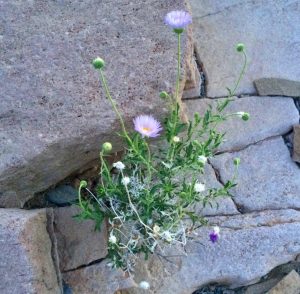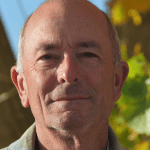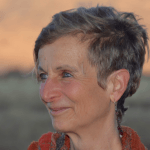The Nature of Illness, Loss and Death
Sep 12th, 2021 - Sep 19th, 2021 | Big Pine, California | Petra Lentz-Snow, Angelo Joseph Lazenka | Living & Dying
The pandemic has recently brought the nature of illness, loss and death sharply into our collective consciousness reminding us that no human, no matter how healthy or resourced, is immune to drastic and traumatic change. Some of us are cracked open in sudden ways, through a life threatening illness, an accident or the loss of a loved one, others encounter the break-down of our body in a more gradual aging process. No matter your individual constitution, your heritage, your social standing or genetic make-up, no one escapes the vulnerability that comes with inhabiting a temporal body.
As a largely uninitiated culture, we are terrified of the fertile darkness of the outbreath and the quicksands of transformation. In modern life, illness, loss and death have become the enemy. In today’s world, we are in constant search of easy fixes, and obsessed with staying eternally young and forever fit, no matter the cost. As long as we possibly can, we turn away from any notion of death, small or big. With that though, we also deprive ourselves of what naturally arises from death, which is birth, and the inequitable beauty of new beginnings.
At the core of this defensive stance is the fear of separation, the modern perception of life as a straight-line progression of birth-life-death where one is birthed from nothingness and dies into the void. We have forgotten that we belong, that we are born into a circle we were already part of, since before we were even conceived. A circle we will continue to nurture, long after our bodies have returned to the mycelial network from which they arose. Life is cyclical and forever becoming. When did we forget that?
It wasn’t always so. Those who have gone before us, knew. Rite of passage ceremonies in cultures around the world speak very clearly to the need to initiate humans into the seriousness of a life containing a wide range of reality – from blessed moments of ecstasy, expansion, and interconnectedness to the sharp edge of suffering, loss and inescapable pain.

Significant illness, traumatic loss and brush ups with death, no matter how painful, are also invitations of initiation. Illness, and loss relentlessly help us practice our living and our dying, their tight embrace flushing us out of the thicket of our habitual patterns, and daring us to live in the moment with unprecedented presence. We may suddenly feel ourselves more open to surrender old beliefs, and limitations and harness new perspectives and insights. Notwithstanding the suffering we endure, we may surprise ourselves with a courage, a tenderness, a clarity we didn’t know we had. We may find that in these fault lines of our living a mysterious kind of aliveness is wildly awake.
Schedule: Mornings will be spent together in circle with the group, and afternoons are time for contemplative walks and time alone on the earth. We will use the four shields as a road map, to track our individual experiences, and mark life change as it pertains to the theme, through the lense of body, soul, mind and spirit. A day long solo with fasting (optional) begins on the morning of day 6. During your time of fasting and aloneness, your guides will maintain a safe perimeter around the area, and another person will be nearby. Individual modifications to the solo are made based on medical and personal needs.
Place: Big Pine is nestled in the wide embrace of the Owens valley, with quick access into the rugged Sierra Nevada on one side and the soft rounded hillsides of the Inyo Mountains on the other. Payahüünadü, the indigenous name off this valley is the ancestral, and contemparory home of the Nüümü/Newe people. The ancient bristlecone forest is home to the some of the oldest trees on earth.
Venue: The program will be held at Baker Creek Campground in Big Pine, CA. We will reserve a group campsite but participants who prefer or need indoor accommodations, are welcome to make independent reservations in Big Pine (several motels and Airb&b rentals).
Financial Hardship: General scholarships are available through the school – and, aware of the disparity of income caused by racial, and social inequities, as well as the financial burden of many health conditions, for this program we are offering two spaces covering up to 80-90% of total tuition, based on need. Please contact Petra for more info.
Equipment: We will provide a list of personal equipment that each participant should bring, and we will also provide some group equipment for the group kitchen on the campground.
Starting and Ending times: We will meet at 10am on September 12 at Baker Creek Campground, in Big Pine, CA. The program will conclude by noon on September 19 at Baker Creek Campground.
Program Questions Contact: Petra Lentz-Snow at [email protected]
Additional course details & Materials
We will meet at 10am on September 12 at Baker Creek Campground, in Big Pine, CA. The program will conclude by noon on September 19 at Baker Creek Campground. ADDITIONAL FEES: TBD.
You will be responsible for bringing your own food and equipment, though we can provide some gear if needed. We ask everyone to come prepared to live self-sufficiently. You will need to bring shelter and clothing suitable for a full range of inclement weather.
All participants must submit the required health questionnaire and liability form.
If you have questions about the enrollment process contact us at [email protected] or call 760-938-3333.
There is no required reading for this program.
We live and work on lands that have been for thousands of years and still very much are inhabited by the Nüümü (Paiute), Newe (Shoshone) and Timbisha peoples. Like so many places, the Owens Valley was named after a settler who apparently never set foot here. It's true name is Payahüünadü or Panawe, given by the Nüümü and Newe peoples, respectively. This land acknowledgement is a recognition of the original inhabitants of the Eastern Sierra, and is intended as a show of respect for Native peoples and to surface the often-suppressed colonial history of our country. We encourage you to learn more about the indigenous culture and history of this land that you will be venturing out on while you are with us. visit http://www.oviwc.org/storymap/ for a great interactive story map of the history of this valley. More information on this topic is available upon registration.
To learn more about our commitment to regenerative relationships please visit Cultural Relations.



